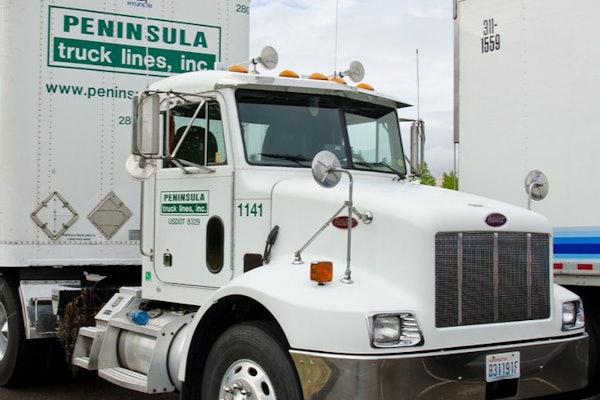Your driver recently drove past a gruesome catastrophic accident scene and now is demanding you to pay for psychotherapy. If that sounds ridiculous, welcome to the real world of workers’ comp.
Psychological claims involving lack of sleep or witnessing a horrible accident are examples of the trend toward the expansion of workers’ compensation coverage, says attorney Gerald Cooper, who handles trucking industry workers’ comp legal issues for Scopelitis, Garvin, Light & Hanson. Some administrative law judges are finding such claims compensable, Cooper says. “It’s just a nonstop broadening of acceptable claims.” Meanwhile, the medical costs associated with each of those claims continue to rise.
Over the past several years, escalating workers’ comp costs have prompted state legislatures to consider bringing their systems more in balance between employers and their employees. Reforms have been enacted recently in several states, including California, West Virginia and Missouri; and Texas, Oklahoma, South Carolina and Maryland, among others, are seriously considering changes in the near future.
Until Jan. 1 of this year, West Virginia was one of a handful of states that required employers – except those that are self-insured – to purchase workers’ comp coverage through a state-run plan. The plan was in debt to the tune of $5 billion, says Fred Burns, chairman of Marlinton, W.Va.-based Burns Motor Freight. “Our rates were just constantly going up.”
Although the West Virginia system did classify industries, employers could count on sizeable premium increases each year. And since the state system wasn’t market-driven, there was practically no incentive to get tough with fraudulent claims. For example, employees nearing retirement usually could visit a doctor and get a $15,000 or $20,000 disability payment based on partial hearing loss, which naturally occurs to people as they age, Burns says.
Under reforms enacted last year, West Virginia has formed its own mutual company and will open workers’ comp insurance to private-sector competition in 2008. But Burns is extremely pleased with his new policy that took effect Jan. 1 and expects to stay with the state’s mutual company.
“My rate went down about 26 percent,” Burns says. “I was tickled to death with it.” The new system is more market-driven, so Burns Motor Freight, which has a good claims record, benefited. Meanwhile, some riskier industries such as coal mining and timbering continued to see premium increases.
Missouri last year enacted workers’ comp reform that directly addressed a controversy peculiar to the trucking industry: whether owner-operators leased to carriers are employees and eligible for workers’ comp. The legislation clarified that they are not. This issue particularly was important in Missouri due to litigation by the Owner-Operator Independent Drivers Association over the status of participants in lease-purchase programs, but it will arise again as more states pursue reform.
Other reforms in Missouri include a provision that an employee’s work must be the prevailing factor – not just one factor – in an injury for it to be compensable. The law further specifies that cardiovascular, pulmonary and respiratory diseases are not compensable unless the employee’s work is the prevailing factor in the illness. And Missouri tried to rein in administrative law judges by subjecting them to periodic votes of confidence by a review committee. Previously, ALJs were appointed for life.
Tom Kretsinger Jr., president of Liberty, Mo.-based American Central Transport, sees the tightening of the rules governing heart and circulatory diseases as especially important for trucking companies. “As the driver population ages, you start to see more drivers with health issues that come with age, such as heart attacks or strokes. In the past, there has been a question of whether a guy had a heart attack because of the job or too many chicken-fried steaks at the truck stops.”
To save money on workers’ comp, do all you can in your own operation (See “Labor pains,” page 48). But in many states, even the best risk management leaves you exposed to extremely employee-friendly laws and regulations. To find out what you can do to further the cause of reform in your state, contact your state trucking association or business council.








